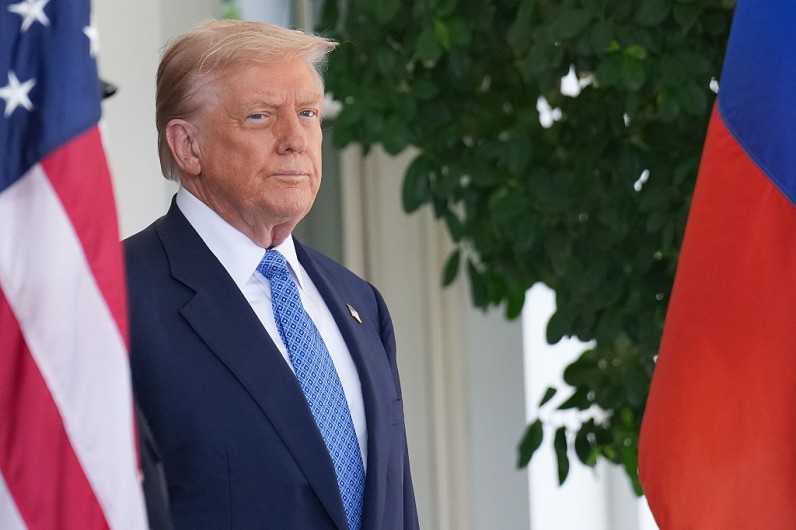
President Donald Trump has signed a new proclamation extending tariff rebates for American carmakers while introducing a 25% import tax on medium and heavy-duty trucks, a move aimed at boosting domestic manufacturing and protecting US jobs.
The order, signed Friday, will take effect on November 1, according to senior administration officials.
It expands an existing rebate program meant to offset costs from Trump's earlier import duties on auto parts.
Originally set to expire in 2027, the rebate will now continue through 2030, giving automakers like Ford and General Motors more time to adjust their supply chains and move production to the United States.
The updated policy provides a 3.75% rebate on the sale price of vehicles made in the US, Bloomberg said.
This rate is based on a 25% import tax applied to foreign-made parts that make up about 15% of a car's total cost.
Officials said the goal is to help domestic manufacturers stay competitive despite higher import fees.
"The extension ensures a fair playing field and long-term stability for American workers," Ford CEO Jim Farley said, noting that the rebate could help secure jobs and strengthen the auto supply chain.
Trump's new directive also adds a 10% import tax on buses while expanding the rebate program to include manufacturers of trucks and engines made in the US.
However, these new tariffs will not apply to imports covered by the US-Mexico-Canada Agreement (USMCA), which remains in effect but is due for renegotiation next year.
Trump signs order placing tariffs on foreign trucks, buses https://t.co/qw2OiLcd3y
— John Solomon (@jsolomonReports) October 18, 2025
Trump Tightens Auto Tariffs, Raising Import Costs
The administration said the changes came after discussions with auto industry leaders who were concerned about rising costs and foreign competition.
"This is about ensuring American automakers can compete and thrive," one senior official said, speaking on condition of anonymity.
According to AP News, Trump first introduced temporary tariff relief in April, calling it "short-term aid during this little transition."
Friday's extension signals a shift toward a longer-term trade strategy designed to increase US production while maintaining pressure on foreign automakers.
The 25% truck tariff could impact hundreds of thousands of vehicles imported each year.
However, industry data shows that US truckmakers like Ford, General Motors, and Stellantis may benefit from reduced competition and stronger domestic demand.
The new policy comes as vehicle prices remain at record highs.
According to Kelley Blue Book, the average price of a new car in September reached $50,080, up 3.6% from last year.
Experts warn that additional import taxes could push prices even higher for consumers, but the White House insists the long-term gains for US manufacturing outweigh the short-term costs.







Join the Conversation